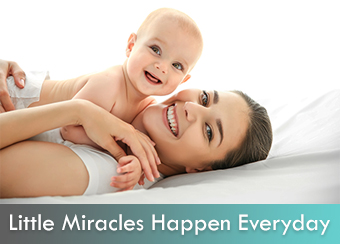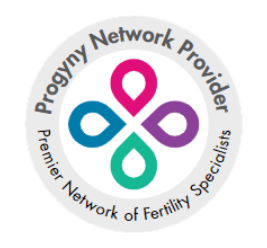Becoming an egg donor is one of the most generous gifts a woman can possibly extend to couples who struggle with infertility.
However, a wealth of myth-information creates barriers between some of the healthiest egg donors and their prospective recipients.
Don’t Let These 5 Egg Donation Myths Stop You
Are any of these myths stopping your egg donation process? If so, we’re here to correct the misinformation (aka, “myth-information”). Are you feeling overconfident about the number of egg cycles you can provide? We’re here to correct that myth, too!
And remember, never hesitate to contact a local egg bank to learn more about egg donation. We want our donors to be 100% confident in their decision-making process, so we are as honest and transparent as possible.
Myth #1: You’ll Deplete Your Own Egg Supply
When you are born, your ovaries hold more than one million immature eggs. Egg stores begin to decline after you reach puberty, exacerbated by things like smoking, poor lifestyle choices, chemotherapy, radiation, and certain medical treatments. However, healthy women between the ages of 20 and 30 still have thousands of eggs left in the ovaries.
Assessing your egg stores is one of the first steps of the egg donation process. We value your fertility above all else. If your hormone tests or ultrasounds reveal that you have a low ovarian reserve, we’ll let you know immediately. We only retrieve eggs from women with abundant egg stores. After we stimulate the production of about 15 to 20 or so eggs, you’ll still be left with thousands more when you’re ready to start your own family.
Myth #2: Any Woman Can Become an Egg Donor
Not true. We go through a rigorous screening cycle. During this time, we may cut you loose as a result of our findings, OR you may cut yourself loose if you decide it’s not the right choice for you or you can’t maintain the set schedule of appointments.
Visit our Become an Egg Donor page to learn more about what we are looking for in an egg donor, along with things that may not make you the best candidate. Among other things, becoming a donor requires:
- Being between the ages of 20 and 30
- Passing a rigorous physical, psychological, reproductive exam, review of personal/familial medical history, etc.
- Testing negative for recreational drugs, certain pharmaceutical medications, and nicotine products
- Having a healthy egg/follicle count (to protect you from Myth #1)
Myth #3: You Can Donate Eggs as Many Times as You Want
As we mentioned in Myth #1, your fertility is the top priority. Therefore, you cannot donate eggs indefinitely. The American Society for Reproductive Medicine (ASRM) sets the legal limit for egg donation cycles here in the United States.
In the ASRM’s committee opinion statement on repeat oocyte donation, they write: The basis for this recommendation is rooted in a concern over the potential cumulative risk accrued after a donor undergoes six ovarian-stimulation and egg-retrieval procedures.
Myth #4: There Are Serious Risks Associated with Egg Donation OR Donating Eggs is Painful
The most serious risks associated with egg donation cease to exist once a woman has passed the physical exams, reviews of personal/family medical histories, psychological screenings, and the related reproductive exams and screening evaluations. Once accepted, egg donors begin using injectable fertility medications, altering hormone levels to “hyperstimulate” the ovaries and release the 10 to 20 eggs we’re hoping for.
During the follicle stimulation process, associated side effects are similar to a strong bout of PMS (bloating, cramping, moodiness, tenderness in the abdomen/pelvis, tender breasts, etc.). However, we carefully monitor egg donors through the entire process. If symptoms are more severe than normal, we immediately stop the medications, and any discomfort will fade within a matter of hours without any risk to you.
Myth #5: Egg Donors Have to Miss Lots of Work or School
Not at all. When you sign up to be an egg donor, we take your schedule into account from the get-go and choose a location and cycle date that works for you. Yes, there is a temporarily demanding appointment schedule. The process takes about six to ten (6 to 10) weeks from start to finish.
Visit our page covering the Egg Donation Process to read about the experience in more detail.
Are you considering donating your eggs to help someone start a family while simultaneously receiving generous compensation for your time and effort? Contact us at the Northern California Fertility Medical Center, (425) 296-7227, and we’ll answer any questions you might have. Otherwise, feel free to begin our donor prescreening application online.





